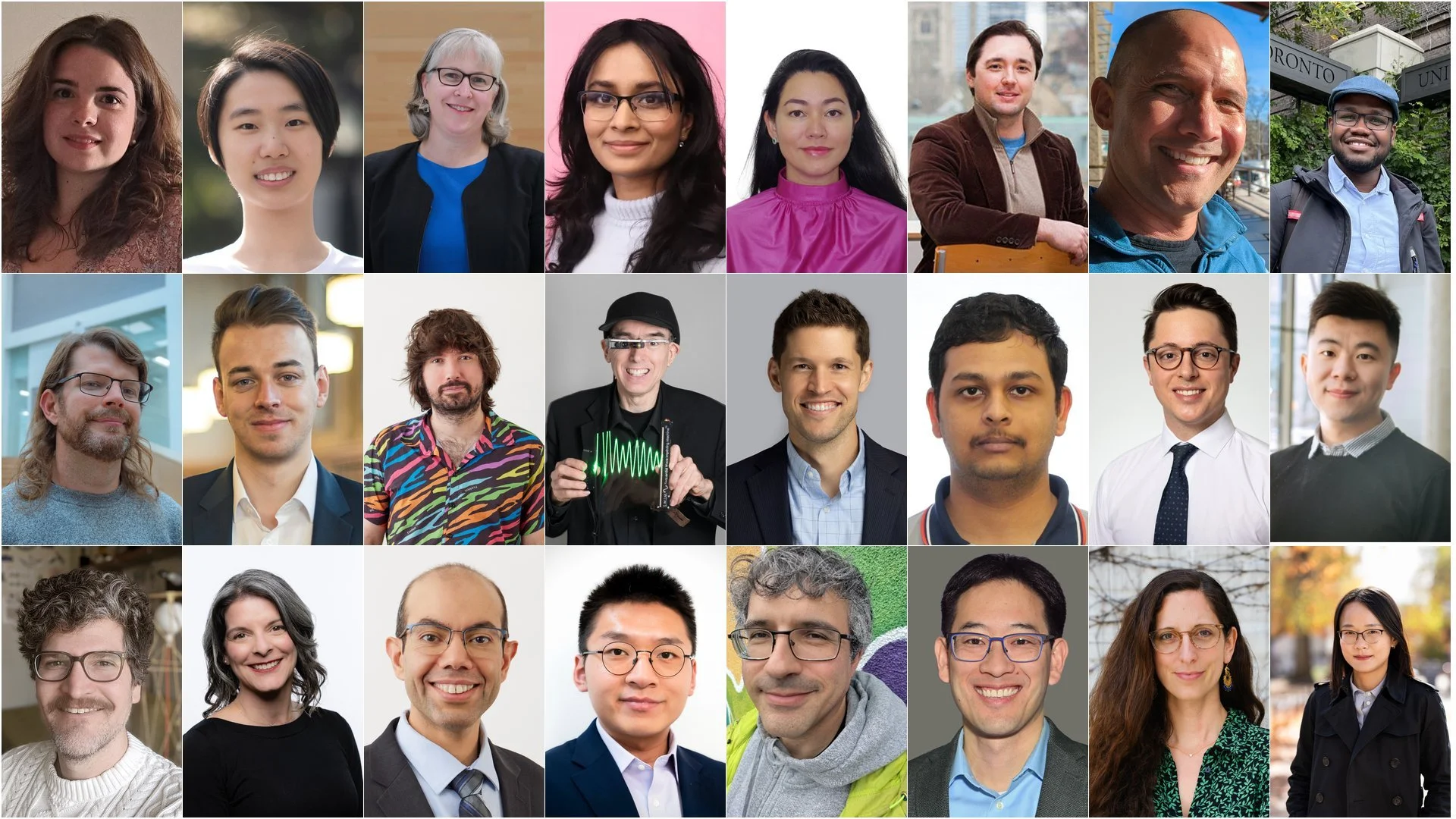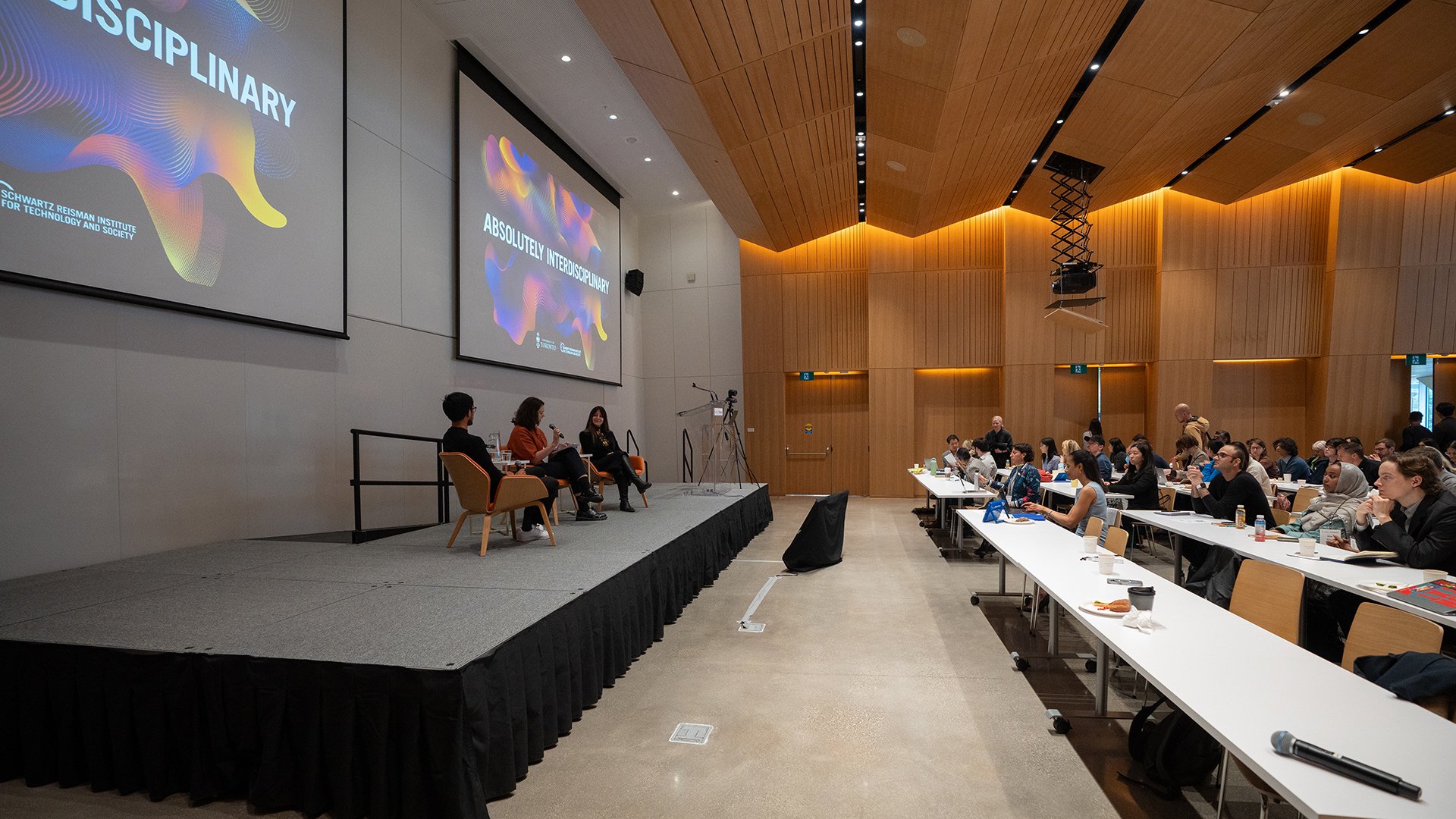WHAT’S HAPPENING
Here’s what we’re thinking about, talking about, and working on at the Schwartz Reisman Institute.
When the algorithm is wrong: A new partnership calls out racism in AI systems
A new partnership co-led by Karina Vold is confronting racism in AI systems—highlighting how tools like facial recognition and LLMs disproportionately harm Black and racialized communities, and calling for greater public awareness and equitable governance of AI in Canada.
AI companions: Regulating the next wave of digital harms
From AI chatbots marketed as digital partners to voice assistants designed for intimacy, these systems promise connection while raising urgent questions about privacy, manipulation, and digital addiction.
Eight research leads drive SRI’s mission forward with new projects
With two new appointments and six renewed roles, the Schwartz Reisman Institute’s 2025–26 cohort of research leads will advance projects on trust, creative pedagogy, agentic AI, democratic fairness, and human–machine relationships, fostering public dialogue and policy insights on the transformative role of advanced technologies like artificial intelligence.
SRI Seminar Series continues in fall 2025 with leading voices on technology and society
The Schwartz Reisman Institute is proud to announce its SRI Seminar Series programming for Fall 2025. This semester, an extraordinary lineup of scholars, technologists, and legal thinkers will examine urgent issues at the intersection of technology, governance, and society. Through thought-provoking presentations of new research and ideas, the series will explore topics ranging from the ethics of AI in education and the creative industries, to the governance of advanced AI systems, to the social and political dynamics of democratic engagement in the digital age.
Schwartz Reisman Institute welcomes 24 new faculty affiliates for 2025–26
The Schwartz Reisman Institute is pleased to announce the appointment of 24 new faculty affiliates for the 2025–26 academic year—its largest incoming cohort to date. Representing a broad range of disciplinary backgrounds, the new affiliates bring deep expertise in artificial intelligence (AI), data science, public policy, digital culture, healthcare, ethics, law, sustainability, and education.
Absolutely Interdisciplinary 2025 explores new frontiers in AI research
At SRI’s annual conference, participants discussed future directions and key challenges in AI research, including the complexities of aligning advanced AI with human values and interdisciplinary perspectives on AI safety.
AI and trust: Security technologist Bruce Schneier explores governance in the age of machine agency
The Schwartz Reisman Institute for Technology and Society (SRI) hosted a roundtable discussion on February 11, 2025, as part of the official side events at the AI Action Summit in Paris centered on insights from an upcoming SRI paper, Trust in Human-Machine Learning Interactions: A Multifaceted Approach, led by SRI Research Lead Beth Coleman.
Schwartz Reisman Institute announces 2025–26 graduate fellows
The Schwartz Reisman Institute for Technology and Society is proud to announce the appointment of fifteen new graduate fellows from across the University of Toronto.
Building trust in AI: A multifaceted approach
The Schwartz Reisman Institute for Technology and Society (SRI) hosted a roundtable discussion on February 11, 2025, as part of the official side events at the AI Action Summit in Paris centered on insights from an upcoming SRI paper, Trust in Human-Machine Learning Interactions: A Multifaceted Approach, led by SRI Research Lead Beth Coleman.
The path to safe, ethical AI: SRI highlights from the 2025 IASEAI conference in Paris
As the SRI community navigates the evolving landscape of artificial intelligence, a critical question remains at the forefront: How can AI be not only effective but also safe and aligned with human values?
Absolutely Interdisciplinary returns to explore new frontiers in AI research
The Schwartz Reisman Institute’s annual academic conference Absolutely Interdisciplinary returns for 2025 to explore interdisciplinary approaches to AI governance, risk and safety.
New cohort of SRI faculty affiliates and postdocs announced for 2025
The Schwartz Reisman Institute for Technology and Society (SRI) is thrilled to welcome eight new faculty affiliates and three new postdoctoral fellows to its vibrant research community.












